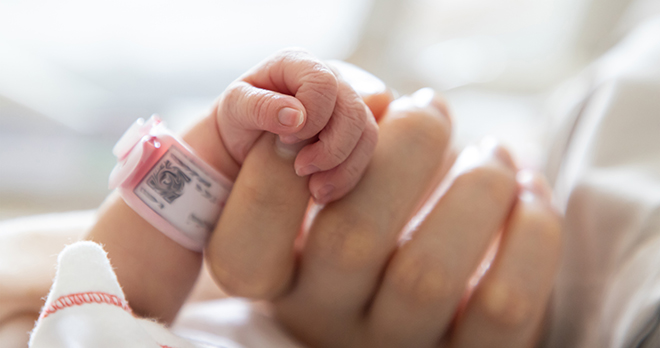Jaundice in newborns – how should it be monitored and treated?

Jaundice (or hyperbilirubinaemia) in newborn babies is normally harmless but, if unspotted and left untreated, it can cause brain damage.
As a lawyer supporting families affected by untreated jaundice, I did some research into how often brain injury in babies is caused by untreated jaundice in reported medical negligence cases.
Lawtel is an online tool which publishes medical negligence case reports. In the 10 years between 2010 and 2020 there were 53 reported cases on Lawtel involving brain damage to babies at less than one week old. For 6% of these babies, the brain damage is recorded as having been caused by untreated jaundice or hyperbilirubinaemia. This is not an enormous percentage, but for a condition that has such a well-recognised management plan I was surprised how many reported cases there were.
What is jaundice/hyperbilirubinaemia?
Blood contains red blood cells which carry oxygen around the body. Red blood cells are constantly being created and broken down. When red blood cells break down, bilirubin is released.
Jaundice (sometimes referred to as hyperbilirubinemia) can occur when there is too much bilirubin in the body. This may be because red blood cells are being broken down too quickly, or because the body is unable to dispose of the bilirubin quickly enough.
Jaundice is normally harmless but too much bilirubin is toxic to the brain and can cause brain damage. This is known as kernicterus. Bilirubin-induced brain damage can result in developmental delay, hearing problems and cerebral palsy.
How should jaundice/hyperbilirubinaemia be monitored?
The National Institute for Care and Clinical Excellence (NICE) has produced guidelines on the management of jaundice in newborn babies under 28 days. The guidelines recognise that the following factors may put a baby at an increased risk of jaundice:
- Gestational age under 38 weeks
- A previous sibling with neonatal jaundice requiring phototherapy
- Visible jaundice in the first 24 hours of life
- If they are being fed breast milk exclusively
The guidance also suggests that all babies with suspected jaundice in the first 24 hours of life should have a blood test to measure the amount of bilirubin within two hours, and then every six hours thereafter until the bilirubin level is okay, stable and/or falling.
How should jaundice/hyperbilirubinaemia be managed if it becomes a serious concern?
If the bilirubin levels are too high then the baby will undergo phototherapy which uses light to break down the bilirubin. If phototherapy is not enough to break down the bilirubin then a baby may require a blood transfusion, known as an exchange transfusion.
The National Institute for Care and Clinical Excellence has produced some comprehensive graphs for assessing whether to treat neonatal jaundice by phototherapy or exchange transfusion. The graphs alter according to the gestation of the baby and can be found here.
How can I tell if my baby is jaundiced?
If you are concerned about jaundice, there are a few ways to spot the condition and to tell if it is getting worse.
Jaundice can appear as a yellowish tint to the skin. The yellow colour is caused by the build-up of bilirubin in the skin. In babies with darker skin, the yellowing can be harder to spot. The yellow tint is normally first noticeable in the face and then the chest, stomach, arms and legs. Not all babies follow this pattern, though.
One way to check the colour of your baby’s skin for jaundice is to press one finger on your baby’s forehead or nose. If the skin is jaundiced, it will appear yellow when the finger is removed.
The following are signs of worsening jaundice:
- The whites of the eyes appear yellow
- Your baby has a fever
- Your baby is not eating as usual
- Your baby is more sleepy than usual
- Your baby is irritable
- Your baby arches their neck or body backwards
If your baby has suffered harm as a result of jaundice, and you have concerns over their care, please contact our specialist medical negligence solicitors to see if we can help you seek compensation.
Call now









